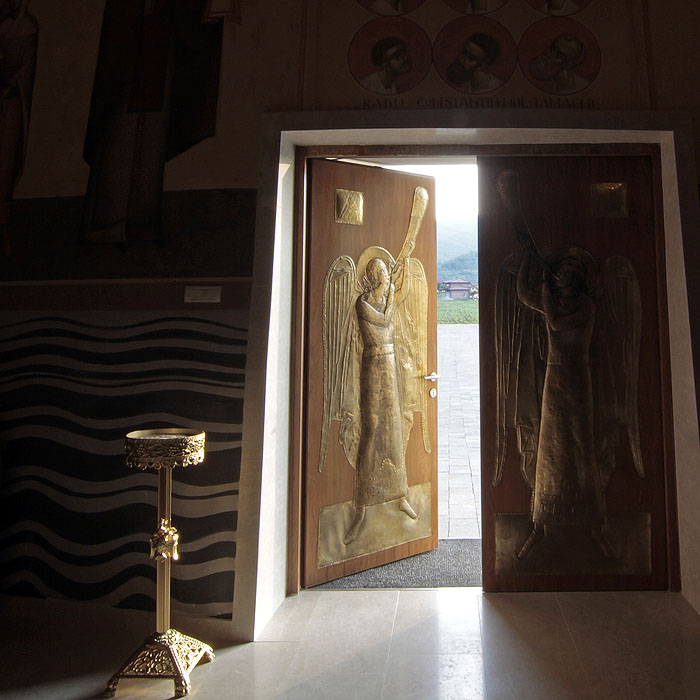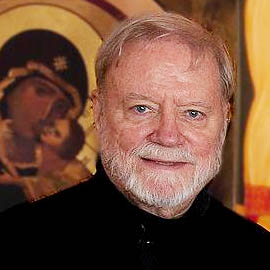Communion & Division – The Structure of Knowledge: Trinitarian Summary (Fr. Patrick H. Reardon)
10 Οκτωβρίου 2016
The universal claims of the Christian revelation rest on the assumption that the God revealed in his Son and his Holy Spirit is the only true God. There is only one God, the Father with his Son and Holy Spirit. Therefore, we Christians are deeply persuaded that God has no relations with this world except through his Son and in his Holy Spirit. In the creation of the world and in all his dealings with it, God has never once acted except through his Son and in his Holy Spirit. The created order and the order of history are related to God only through his Son and in his Holy Spirit. Man has no other access to the true God, and the true God has no other access to man. The revelation of the Holy Trinity is not some new way of God’s dealing with the world. It is the eschatological manifestation of how God has always dealt with the world. According to St. Irenaeus of Lyons, even when God framed man at creation, his eternal Word and his Holy Spirit were the two hands that gave shape to the new creature (Adversus Haereses 5.1.3; 5.5.1; 5.28.1).
First, God’s sending of his Son is the definitive vindication of man’s empirical, categorical knowledge of nature and history. If we believe—as Christian doctrine teaches—that human beings were formed by God for the sole purpose of their incorporation into Christ—to share by grace in that relationship to God which belongs to the Son by nature—it would seem logically to follow that man’s knowing faculties were formed, from the beginning, in order to know the incarnate Son by the enlightenment of the Holy Spirit. In other words, since Jesus Christ, the eternal Son of God, is man’s sole access to the knowledge of God, and since man was created in order to know God, then it must be the case that the human mind was constructed ultimately, eschatologically, to receive the knowledge of Christ. Man’s eyes were crafted that they might gaze upon the King in his beauty. His ears were shaped to hear the words, “Come, ye blessed of my Father.” His very fingers were formed that he might “know the place of the nails.”
Second, God’s sending of his Holy Spirit is the vindication of man’s aspiration toward the transcendent mystery that overshadows all his thought. The Spirit’s transformation of man’s quest for the eternal is the revealed assurance that the metaphysical allure in our hearts is not an illusion. The gift of God’s Holy Spirit asserts that the denigration of metaphysics is a demonic insult to the dignity of the human mind and the all-wise God who made it. In this, as in all matters pertinent to knowledge, the Holy Spirit is our Parakletos, who encourages our every perception of truth; he is our Advocate, our defender against the false accusers of human thought.
Thus, from the very beginning and throughout all of history, God’s Son and Holy Spirit have been mysteriously present to the human mind and heart. Man’s every act of knowing has been some faint response to the mysterious presence of God’s Son and Holy Spirit. The Father’s revelation through his Son and Holy Spirit vindicate man’s innate sense that meaning underlies matter, that essence sustains existence, that nature and history are supposed to say something, that eternal truth is humanly knowable.

This paper was originally presented at the Touchstone conference,
“Christian Unity & the Divisions We Must Sustain,” in November 2001
at the University of Saint Mary of the Lake in Mundelein, Illinois.
Patrick Henry Reardon is pastor of All Saints Antiochian Orthodox Church
in Chicago, Illinois.
He is the author of Christ in the Psalms, Christ in His Saints, and The Trial of Job.
He is a senior editor of Touchstone.




